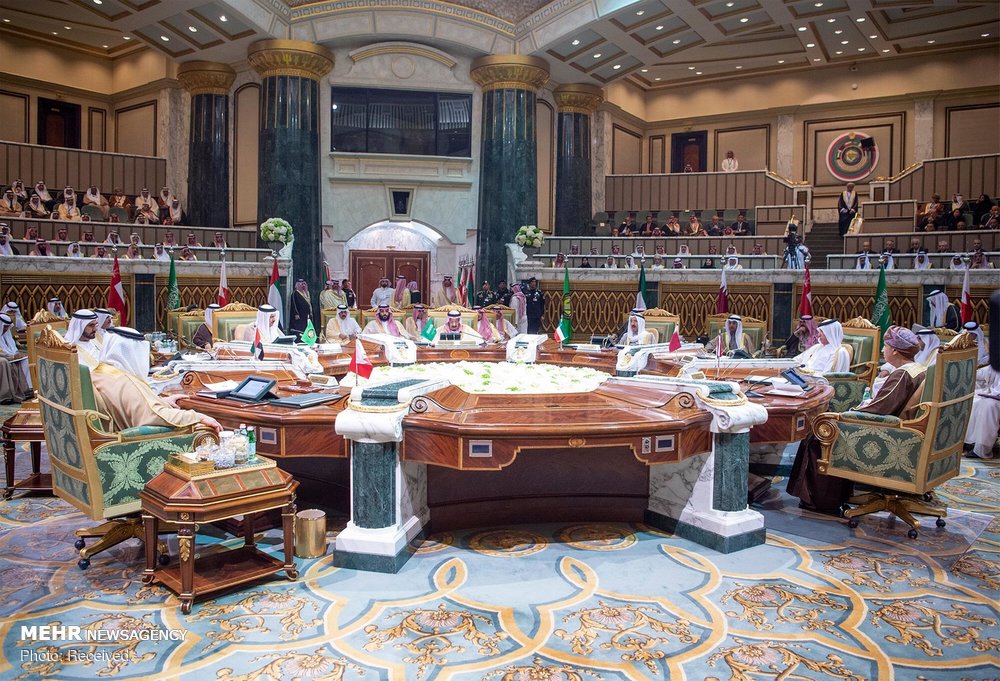In a meeting on June 21, Iran's cabinet of ministers approved the final draft of the 25-year comprehensive cooperation plan between Iran and China.
On July 5, came the announcement of the Iranian FM Zarif about Iran-China negotiations over a 25-year so-called 'accord', which as he put into words is "clear and the two countries have nothing to hide about it." However, some claims and reports were made by some specific foreign-based media lashing out at the Islamic Republic.
To know more about the significance and consequences of the possible agreement for Iran and China, we reached out to Dr. Bilgehan Alagoz, an international relations professor at Istanbul Marmara University.
Here is the full text of the interview:

What is the importance of the 25-year cooperation agreement for Iran and China?
We have just seen the leaked text of the Iran-China agreement. It is not yet clear whether this agreement will come into force. However, it still has crucial implications for both Iran’s regional aims and China's global policy. In recent years, Iran's economy has been hit hard due to the US's decision to withdraw from JCPOA. The pandemic process has further increased the vulnerabilities of the Iranian economy. Therefore, it has become essential for Iran to make a deal with a global actor like China in order to get rid of economic problems. In this context, The deal between Iran and China appears to be a necessity rather than a choice. In addition to this, Iran aims to balance its relations with other major powers like the EU and Russia by establishing closer relationships with China to eliminate US pressure. However, deepening relations with certain powers like the EU or Russia would have some consequences for Iran in the long term. For this reason, Iran had to cooperate with another global actor to balance against the US pressure. Thus, the new process developed by Iran and China should not only be perceived as a display of power against the United States, but it is also relevant to Iran's strategy to balance its relations with other powers like EU and Russia.
The new process developed by Iran and China is also relevant to Iran's strategy to balance its relations with other powers
For China, cooperating with Iran is part of its global strategy. China is dependent on Persian Gulf energy resources. Its main rival, the United States pursues a containment policy towards China through increasing its leverage in the Persian Gulf. Thus China’s enhancing relations with Iran can be interpreted as political hedging against the United States.
How can China’s investment affect Iran’s economy?
According to the unverified document, China will invest in Iran up to 400 billion dollars including many sectors such as agriculture, energy, transportation and communication. In addition, Iran will discount energy prices and China will also be active in some strategic ports and will build railways in the area from Pakistan to Lebanon. All aforementioned investments would help Iran to recover its economic problems to some extent. All aforementioned investments would help Iran to recover its economic problems to some extent At this point, it is important to draw attention to the fact that Iran has to create sustainable solutions in order to eliminate economical problems. It is unclear whether China has a long term strategy with Iran or not. Hence, the consequences of China’s investments in Iran will become certain due to China’s concrete steps.
How will the agreement affect the US maximum pressure policy against Iran?
In the past years, China did not directly object to US policy towards Iran. For instance, China did not reject when the USA pioneered a decision against Iran before the United Nations Security Council. However, four vital interests (protect the homeland, promote American prosperity, preserve peace through strength, advance American influence) set by President Trump in the 2017 National Security Strategy have been a turning point for China. Under “Principled Realism Doctrine”, China was labeled as a challenge against American power, influence, and interests. At the same time, Iran was referred to as a state determined to destabilize regions, threaten Americans and the allies. Trump believes that the United States is due to rethink the policies of the past two decades—policies based on the assumption that engagement with rivals and their inclusion in international institutions and global commerce would turn them into benign actors and trustworthy partners. According to Trump, this premise turned out to be false and a strategy combining China and Iran is vital.
Trump’s new strategy based on containing China through Iran urged China to determine a new policy towards Iran
Trump’s new national security strategy which is based on containing China through Iran urged China to determine a new policy towards Iran. The new deal with Iran is mostly relevant to the updated approach of China. Thus, it is certain that the agreement between Iran and China aims to weaken the impact of the US maximum pressure strategy towards Iran. As I mentioned previously, the power of agreement and its impact on US policies will depend on China’s determination to sustain the cooperation with Iran.

Will this affect China's relation with other Persian Gulf states?
Since 2013, China has pursued an ambitious policy named the Belt and Road Initiative including policy towards the Persian Gulf. China’s policy towards the Persian Gulf is mostly based on building economic ties with all actors in the Persian Gulf. Beyond the oil and energy sector, China’s trade volume has reached over $197 billion. However, despite the significant economic interdependence between China and the Persian Gulf states, China does not want to get involved in existing rivalries among the regional actors. On one hand, excluding itself from the disputes of the region turns into an advantage in order to pursue the increasing economic ties with the PG countries. On the other hand, keeping a distance from the rivalries among the regional actors limits China’s leverage. If the agreement with Iran comes into force, China will need to upgrade its whole Persian Gulf policy
In this context, if the agreement with Iran comes into force, China will need to upgrade its whole Persian Gulf policy, too. While engaging with Iran both in economic and political sectors, China will need to persuade the remaining actors, namely Saudi Arabia, that it does not have an intent to empower Iran against them.
Interview by Payman Yazdani

























Your Comment